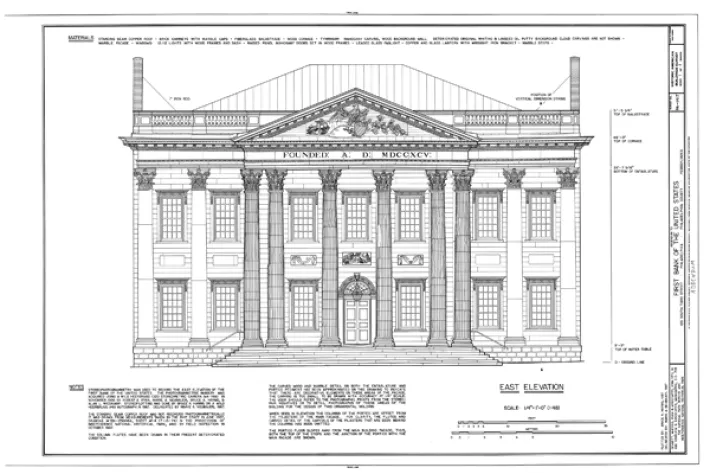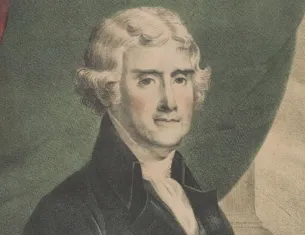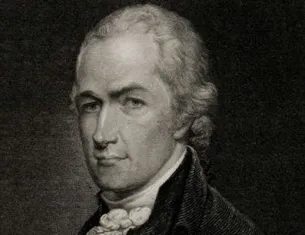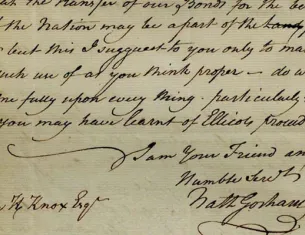Debate on a National Bank, 1790–1791

First Bank of the United States (Library of Congress)
Under the new US Constitution, the “Necessary and Proper Clause” allowed Congress to make laws that were not part of the enumerated powers. Hamilton and Jefferson debated what was meant by “necessary and proper.” Hamilton said that Congress should do anything it felt was necessary to carry out national responsibilities. Jefferson held that the clause meant that Congress should only take actions that were absolutely necessary.
In 1791, Hamilton proposed a national bank to take care of Revolutionary War debt, create a single national currency, and stimulate the economy. Jefferson argued that the creation of a national bank was neither part of the enumerated powers nor necessary and proper. Both men presented their arguments to President Washington, and ultimately Washington agreed with Hamilton.


